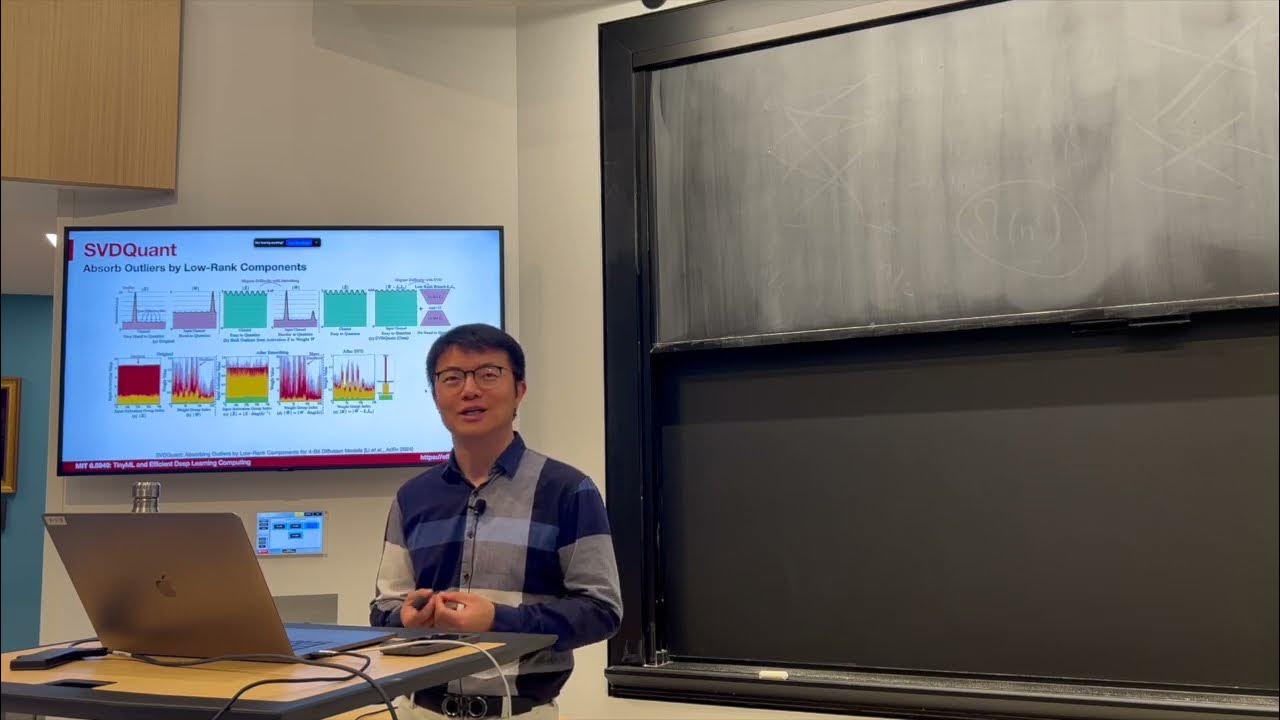So Google's Research Just Exposed OpenAI's Secrets (OpenAI o1-Exposed)
Summary
TLDRThe video explores advancements in AI, particularly focusing on the shift from scaling large language models (LLMs) to optimizing test-time compute for better efficiency. It contrasts traditional methods of making models larger with new approaches, such as adaptive response updating and verifier reward models, that allow smaller models to think longer and smarter during inference. Research from Google DeepMind suggests these techniques can outperform much larger models while using fewer resources. This shift signals a more efficient future for AI, moving away from brute-force scaling towards smarter compute allocation.
Takeaways
- 🤖 Large Language Models (LLMs) like GPT-4, Claude 3.5, and others have become incredibly powerful, but are resource-intensive to scale.
- 💡 Scaling LLMs by adding more parameters increases their capabilities, but also significantly raises costs, energy consumption, and complexity in deployment.
- 🔄 Test time compute optimization offers a smarter alternative, focusing on how efficiently models use computational resources during inference rather than just making them larger.
- 📚 Test time compute is the computational effort used by a model when generating outputs, similar to a student taking an exam after studying.
- ⚡ Scaling models leads to diminishing returns as performance plateaus while costs continue to rise.
- 🔍 Verifier reward models help optimize test time compute by verifying reasoning steps, similar to a built-in quality checker.
- 🎯 Adaptive response updating allows models to refine their answers based on previous outputs, enhancing accuracy without increasing model size.
- 🛠 Compute-optimal scaling dynamically allocates computational resources based on task difficulty, ensuring efficiency in performance without massive scaling.
- 📊 Techniques like fine-tuning revision models and process reward models allow for better step-by-step reasoning and improved results using less computation.
- 🔬 DeepMind’s research, along with OpenAI’s, shows that smarter compute usage can lead to models that are as efficient as much larger models, marking a shift from the previous 'bigger is better' approach.
Q & A
What is the main challenge with scaling up large language models (LLMs)?
-Scaling up LLMs presents challenges such as increased resource intensity, higher costs, more energy consumption, and greater latency, especially for real-time or edge environment deployments.
Why is optimizing test time compute significant for AI deployment?
-Optimizing test time compute allows for smaller models to think longer or more effectively during inference, potentially revolutionizing AI deployment in resource-limited settings without compromising performance.
What is test time compute and why is it important?
-Test time compute refers to the computational effort used by a model when generating outputs, as opposed to during its training phase. It's important because it impacts the efficiency and cost of deploying AI models in real-world applications.
How does scaling model parameters affect the performance and cost of AI models?
-Scaling model parameters by making models larger can significantly increase performance but also leads to higher costs due to increased compute power requirements for both training and inference.
What are the two main mechanisms introduced by DeepMind for optimizing test time compute?
-The two main mechanisms are verifier reward models, which evaluate and refine the model's outputs, and adaptive response updating, which allows the model to dynamically adjust its responses based on learned information.
How does the verifier reward model work in the context of AI?
-A verifier reward model is a separate model that evaluates the steps taken by the main language model when solving a problem, helping it to search through multiple possible outputs and choose the best one.
What is adaptive response updating and how does it improve model performance?
-Adaptive response updating allows the model to revise its answers multiple times, taking into account its previous attempts to improve its output without needing extra pre-training.
What is compute optimal scaling and how does it differ from fixed computation strategies?
-Compute optimal scaling is a strategy that dynamically allocates compute resources based on the difficulty of the task. It differs from fixed computation strategies by adapting compute power to the task's needs, making it more efficient.
What is the Math Benchmark and why was it chosen for testing the new techniques?
-The Math Benchmark is a collection of high school level math problems designed to test deep reasoning and problem-solving skills. It was chosen because it challenges the model's ability to refine answers and verify steps, which are the core goals of the research.
How does fine-tuning revision models help in optimizing test time compute?
-Fine-tuning revision models teaches the model to iteratively improve its own answers, similar to a student self-correcting mistakes, allowing for more accurate and refined outputs without increasing model size.
What are the potential benefits of using compute optimal scaling in real-world AI applications?
-Using compute optimal scaling can lead to more efficient AI models that perform at or above the level of much larger models by being strategic about computational power, resulting in lower costs and reduced energy consumption.
Outlines

このセクションは有料ユーザー限定です。 アクセスするには、アップグレードをお願いします。
今すぐアップグレードMindmap

このセクションは有料ユーザー限定です。 アクセスするには、アップグレードをお願いします。
今すぐアップグレードKeywords

このセクションは有料ユーザー限定です。 アクセスするには、アップグレードをお願いします。
今すぐアップグレードHighlights

このセクションは有料ユーザー限定です。 アクセスするには、アップグレードをお願いします。
今すぐアップグレードTranscripts

このセクションは有料ユーザー限定です。 アクセスするには、アップグレードをお願いします。
今すぐアップグレード関連動画をさらに表示

Intelligence Artificielle: la fin du bullshit ? (AI News)

L'inesplicabile utilità di Claude Sonnet, a prescindere da ciò che dicono i benchmark

Open Source "Thinking" Models Are Catching Up To OpenAI o1 Already...

【人工智能】OpenAI o1模型背后的技术 | 后训练阶段的缩放法则 | 测试时计算 | 慢思考 | 隐式思维链CoT | STaR | Critic模型 | 大语言模型的天花板在哪里

EfficientML.ai 2024 | Introduction to SVDQuant for 4-bit Diffusion Models

Summing up 2025 MLOps/LLM/AI
5.0 / 5 (0 votes)
